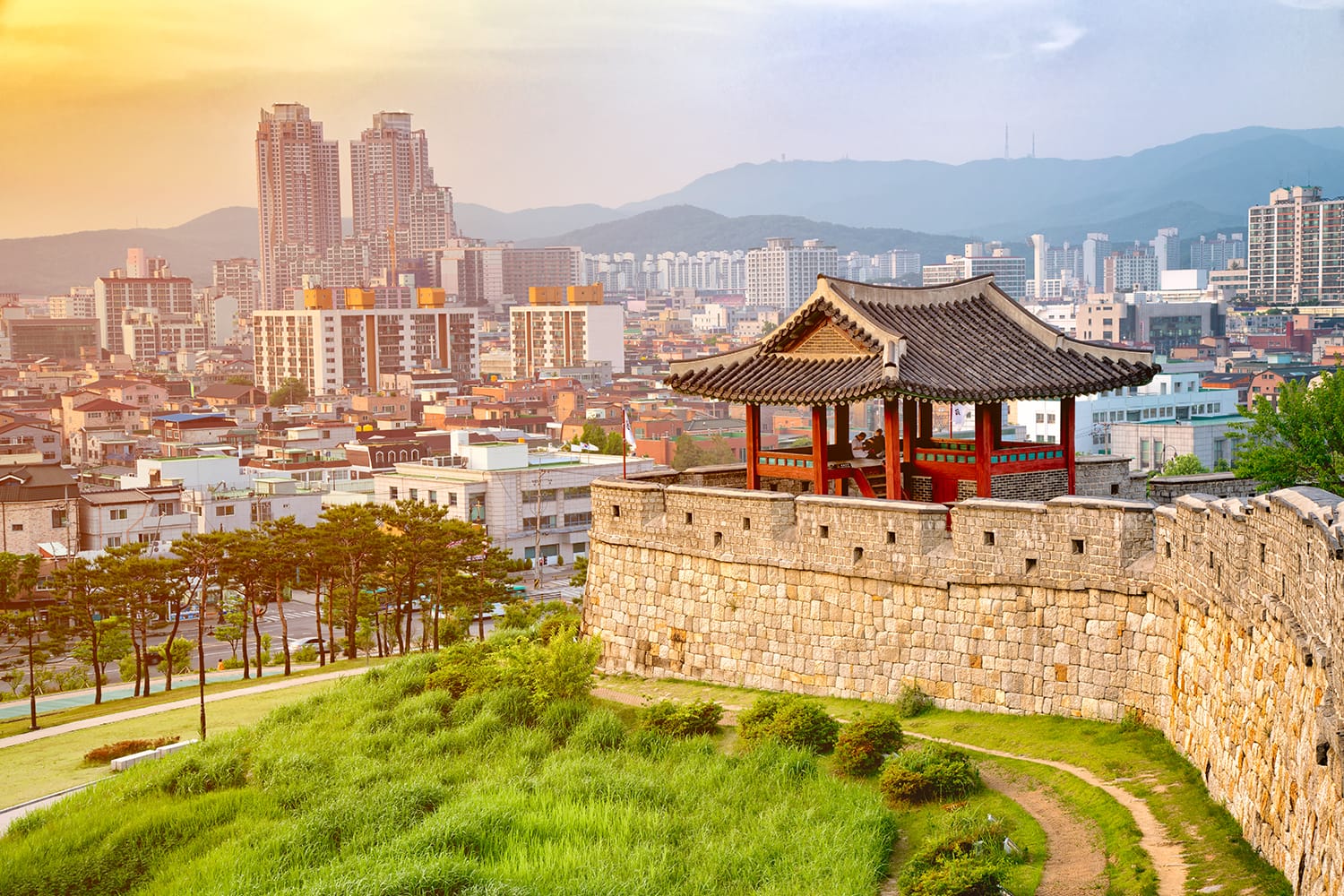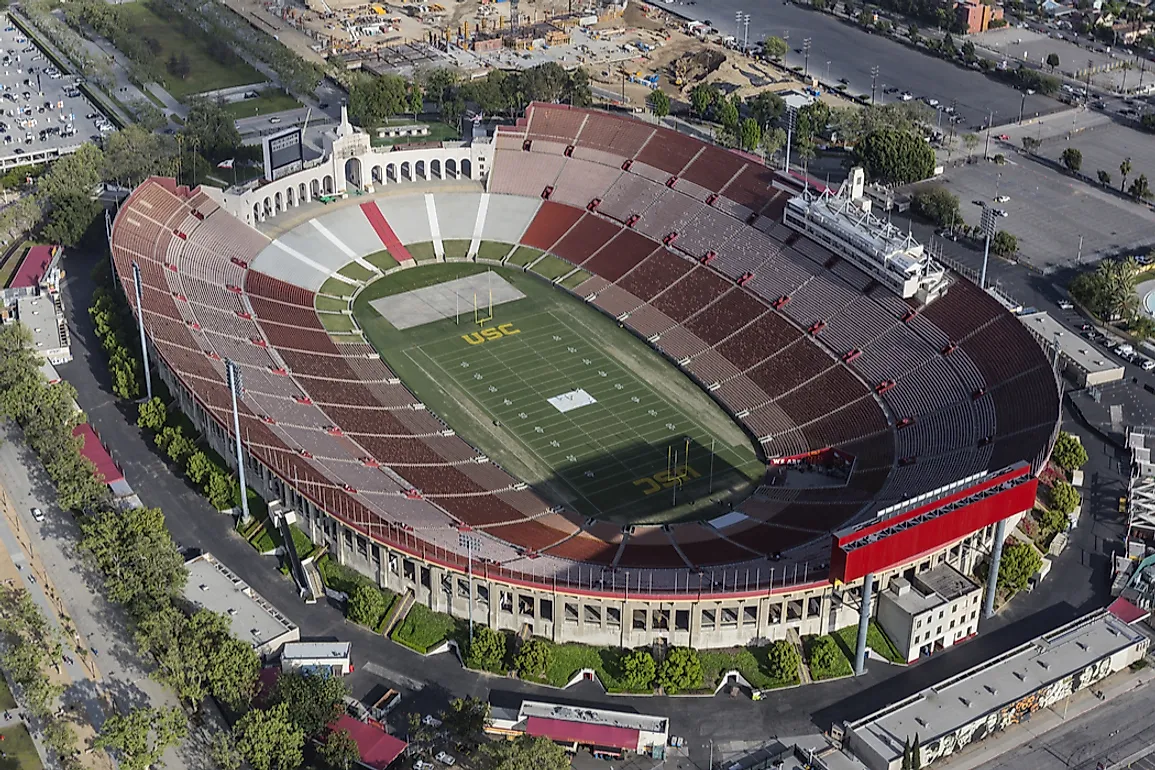“Football Stadiums Worth Visiting in South Korea
Related Articles Football Stadiums Worth Visiting in South Korea
Football Stadiums Worth Visiting in South Korea

South Korea, a nation renowned for its vibrant culture, technological prowess, and breathtaking landscapes, has also carved a significant niche for itself in the world of football. The country’s passion for the beautiful game is palpable, with enthusiastic fans thronging to stadiums across the nation to support their beloved teams. For football enthusiasts planning a trip to South Korea, a visit to some of the country’s most iconic and atmospheric stadiums is an absolute must. These stadiums not only offer a chance to witness thrilling matches but also provide a glimpse into the heart of South Korean football culture.
1. Seoul World Cup Stadium: A Legacy of the 2002 FIFA World Cup
No list of must-visit football stadiums in South Korea would be complete without the Seoul World Cup Stadium. This magnificent arena, located in the capital city of Seoul, served as the centerpiece of the 2002 FIFA World Cup, co-hosted by South Korea and Japan. With a seating capacity of over 66,000, the stadium is a testament to architectural brilliance and engineering prowess.
The Seoul World Cup Stadium is not just a venue for football matches; it’s a symbol of national pride and a reminder of the unforgettable moments witnessed during the 2002 World Cup. The stadium’s design incorporates elements of traditional Korean culture, with its roof resembling a Korean kite and its overall shape inspired by a traditional Korean shield.
Today, the Seoul World Cup Stadium is the home ground of FC Seoul, one of the most successful clubs in the K League 1, South Korea’s top-tier football league. Attending an FC Seoul match at this stadium is an experience to cherish, as you’ll be swept away by the passion and energy of the home supporters. The stadium’s atmosphere is electric, with fans chanting, singing, and waving flags throughout the game.
Beyond football matches, the Seoul World Cup Stadium also hosts various other events, including concerts, festivals, and cultural performances. Visitors can also take a guided tour of the stadium to learn about its history, architecture, and significance.
2. Suwon World Cup Stadium: The Big Bird’s Nest
Another gem from the 2002 FIFA World Cup, the Suwon World Cup Stadium, affectionately nicknamed the "Big Bird’s Nest," is a sight to behold. Located in the city of Suwon, just south of Seoul, this stadium boasts a unique and eye-catching design that resembles a giant bird’s nest.
With a seating capacity of over 43,000, the Suwon World Cup Stadium is a prominent landmark in the city and a popular destination for football fans. The stadium’s distinctive architecture and vibrant atmosphere make it a memorable place to watch a match.
The Suwon World Cup Stadium is the home ground of Suwon Samsung Bluewings, another powerhouse club in the K League 1. The Bluewings have a large and dedicated fanbase, and attending one of their matches at the stadium is an unforgettable experience. The stadium’s atmosphere is particularly intense during derby matches against FC Seoul, creating an electric atmosphere that will leave you on the edge of your seat.
In addition to football matches, the Suwon World Cup Stadium also hosts various other events, including concerts, festivals, and corporate events. The stadium’s spacious grounds and modern facilities make it a versatile venue for a wide range of activities.
3. Busan Asiad Main Stadium: A Coastal Football Haven
Nestled in the vibrant coastal city of Busan, the Busan Asiad Main Stadium is a multi-purpose stadium that has hosted numerous sporting events, including the 2002 Asian Games and the 2002 FIFA World Cup. With a seating capacity of over 53,000, the stadium is a prominent landmark in Busan and a popular destination for sports enthusiasts.
The Busan Asiad Main Stadium is known for its modern design and state-of-the-art facilities. The stadium’s location near the coast provides stunning views of the ocean, adding to the overall experience of attending an event there.
While Busan IPark, the city’s football club, doesn’t consistently play all their matches here, the stadium is still used for significant games and events. The atmosphere during these matches is electric, with the passionate Busan fans creating a memorable experience for all in attendance.

Beyond football, the Busan Asiad Main Stadium also hosts various other events, including concerts, cultural performances, and athletic competitions. The stadium’s versatility and prime location make it a valuable asset to the city of Busan.
4. Gwangju World Cup Stadium: A Symbol of Democracy and Football
Located in the southwestern city of Gwangju, the Gwangju World Cup Stadium is a significant landmark that represents both the city’s democratic spirit and its passion for football. With a seating capacity of over 40,000, the stadium is a prominent venue for sporting events and cultural gatherings.
The Gwangju World Cup Stadium was built for the 2002 FIFA World Cup and has since become a symbol of the city’s commitment to international events and cultural exchange. The stadium’s design incorporates elements of traditional Korean architecture, reflecting the city’s rich history and heritage.
The Gwangju World Cup Stadium is the home ground of Gwangju FC, a club that has a dedicated following in the city. Attending a Gwangju FC match at the stadium is a great way to experience the local football culture and witness the passion of the fans.
In addition to football matches, the Gwangju World Cup Stadium also hosts various other events, including concerts, festivals, and community gatherings. The stadium’s spacious grounds and modern facilities make it a versatile venue for a wide range of activities.
5. Ulsan Munsu Football Stadium: The Home of the Horangi
The Ulsan Munsu Football Stadium, also known as the "Big Crown Stadium," is a football-specific stadium located in the industrial city of Ulsan. With a seating capacity of over 44,000, the stadium is a prominent landmark in the city and a popular destination for football fans.
The Ulsan Munsu Football Stadium is the home ground of Ulsan Hyundai FC, one of the most successful clubs in the K League 1. Ulsan Hyundai, nicknamed the "Horangi" (Tigers), have a large and passionate fanbase, and attending one of their matches at the stadium is an unforgettable experience. The stadium’s atmosphere is particularly intense during important matches, with the fans creating a cacophony of noise and excitement.
The Ulsan Munsu Football Stadium is known for its modern design and excellent facilities. The stadium’s steep stands provide excellent views of the pitch from all angles, ensuring that every fan has a great experience.
Beyond football matches, the Ulsan Munsu Football Stadium also hosts various other events, including concerts, corporate events, and community gatherings. The stadium’s versatility and modern amenities make it a valuable asset to the city of Ulsan.
Tips for Visiting Football Stadiums in South Korea
- Purchase tickets in advance: Tickets for popular matches can sell out quickly, so it’s best to purchase them in advance online or through official ticketing channels.
- Arrive early: Arriving early allows you to soak in the pre-match atmosphere and avoid long queues at the entrance.
- Learn some basic Korean chants: Learning a few basic Korean chants will help you participate in the atmosphere and show your support for the team.
- Try the local food: Most stadiums offer a variety of food and beverage options, so be sure to try some of the local delicacies.
- Respect the local culture: Be mindful of local customs and traditions, and show respect for the fans and players.
- Utilize Public Transportation: South Korea boasts an excellent public transportation system. Using the subway or buses to get to the stadiums is highly recommended to avoid traffic congestion.
Conclusion
South Korea’s football stadiums are more than just venues for sporting events; they are vibrant hubs of culture, passion, and national pride. Whether you’re a die-hard football fan or simply looking for a unique cultural experience, a visit to these stadiums is an absolute must. From the iconic Seoul World Cup Stadium to the distinctive Suwon World Cup Stadium, each stadium offers a unique glimpse into the heart of South Korean football. So, pack your bags, grab your tickets, and get ready to experience the thrill of football in South Korea! You’ll be sure to take away memories that will last a lifetime.

